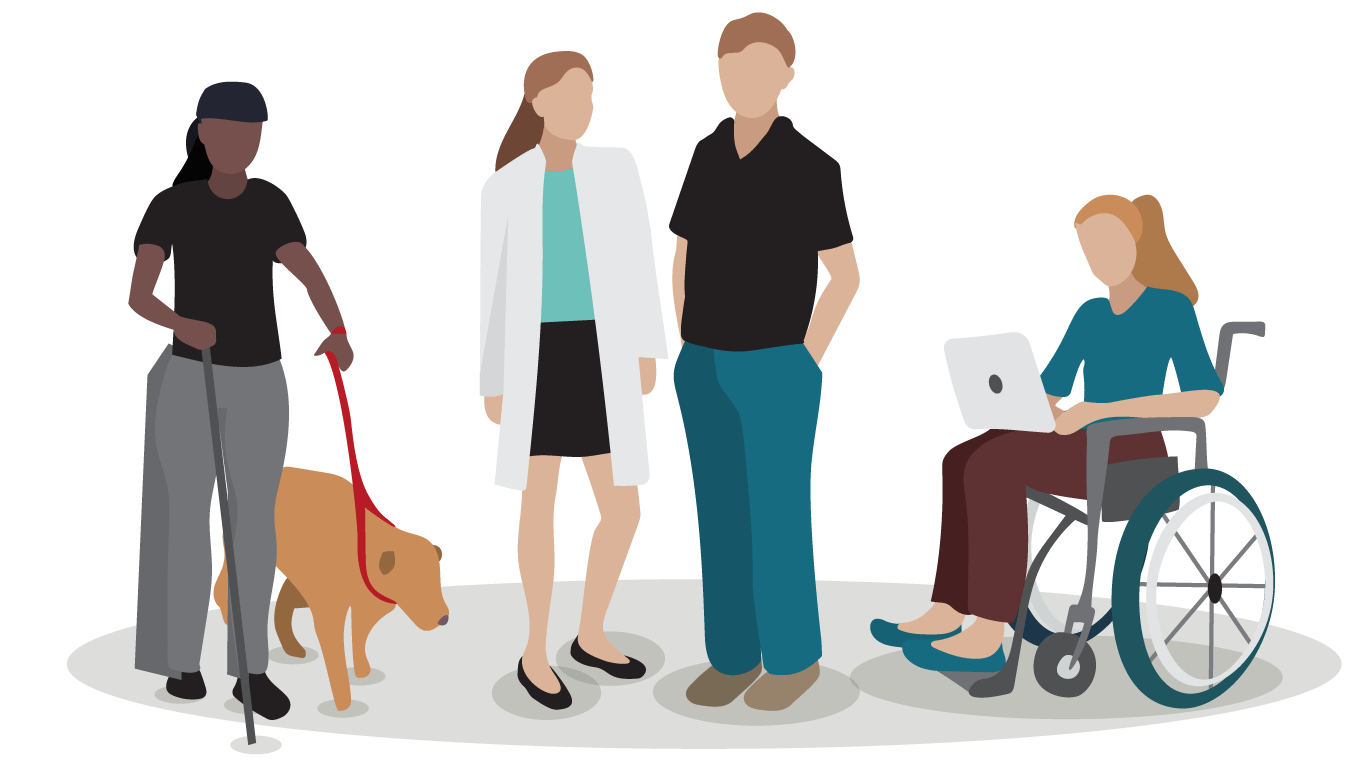The Graduated Approach (Assess, Plan, Do, Review)

Overview
Pupils identified as having SEND should have effective special educational provision in place. This applies to all educational settings such as preschools, schools and colleges. SEND is a shorter term for Special Educational Needs and Disabilities.
All SEND support should follow the Graduated Approach. The Graduated Approach involves educational settings:
- making assessments of individual needs
- planning and trialling different types of support
- learning from what has worked and what needs revising.
It includes detailed assessments, frequent reviews and specialist expertise in successive cycles. This is to match interventions to the SEND of children and young people.
The Graduated Approach is an ongoing form of assessment and support. It is not a single one-time process. This is because:
- The support might not yet be right for the child or young person
- The needs of a child or young person may change over time and the support will need to adjust to meet this change
The cycle of the Graduated Approach includes the processes of:
- Assess
- Plan
- Do (Support)
- Review
The Graduated Approach is sometimes called 'Assess, Plan, Do, Review'.
Below, is an outline of best practice in each of these stages. This outline is for schools but is useful reading for parents and carers who may wish to see a more detailed understanding of the process.
For a more simplified understanding of what these stages include, please see our page:
For information on types of support offered to the broad areas of need, please see our page:
The Universally Available Provision (UAP) is part of the Graduated Approach. The UAP describes the support available in education settings to children and young people with SEND.
School Guidance: Assess
- A clear analysis of the child/young person should be completed. This should involve the teachers or tutors working with the SENCo. SENCo is a shorter term for Special Educational Needs Co-ordinator.
- Staff gather current and previous assessment and experience surrounding the child or young person. It should also draw on other subject teachers’ assessments where relevant. They can then compare the child's development to their peers and national data.
- Staff must consult with the child/young person and their parents/carers. Schools should take any concerns raised by a parent/carer seriously. They should record concerns and compare them to the setting’s own assessment and information on how the pupil is developing. The child/young person’s views and aspirations should form a key part of the assessment.
- Outside professionals should liaise with the setting, school or provider. This will help to inform the assessments. More specialist assessment may be used where there is little or no improvement in the child’s progress. This can be from specialist teachers, health services, social services or other agencies beyond the setting. With the parents' agreement, the SENCo should contact professionals who are not already working with the setting.
- Older students should have the opportunity to attend and receive support at meetings. A parent, advocate or other support may attend with them. This discussion may identify the need for a more specialist assessment from within the college or beyond.
- Regular reviews of assessment should take place.
- Assessments should identify and address barriers to learning and preferred learning styles.
School Guidance: Plan
- The child, young person and their parents/carers should be a part of the decision-making. This can be for the intervention, support and expected outcomes. There should be a transparency on school funded support.
- The parents or carers must be formally notified after a decision to provide a pupil with SEN support. Parents should have already had involvement in forming the assessment of needs. This is outlined above.
- Schools should consider the implementation strategies. The SEND Matrix of Need and Provision outlines these.
- Curriculum planning should take account of specialist advice.
- The settings, school’s or providers information system must record targeted provision. These records must be able to evidence base planning, target setting and monitoring. They must also show the SEN support that has been delivered for the child or young person. This is part of the process of raising achievement. It is vital for the school to be clear about the outcomes required. For pupils with targeted support, a provision map or school based plan should be completed. This should detail expected impact on progress, development and behaviour. It should provide a clear date for review.
- All teachers and staff who work with the pupil should be aware any agreed teaching strategies and approaches. They should also be aware of the pupils needs, desired outcomes and support provided. This is important in larger settings where the young person may meet a range of teaching staff.
- Open conversations with the child/young person and their parents/carers must be held. They should include what the support aims to achieve. They should also include how parents/carers can contribute to progress at home.
- Plans should take into account the views of the child.
- Older students should be wholly involved in development of plans. Plans should reference their aspirations and ambitions for the future. Special educational support for post 16 students might include, for example:
- Assistive technology
- Personal care (or access to it)
- Specialist tuition
- Note-takers and interpreters
- one-to-one and small group learning support
- Habilitation/independent living training
- Accessible information such as symbol based materials
- Access to therapies (for example, speech and language therapy)
The setting, school or provider may need to incorporate external expertise in to into targeted provision. This can be a:
- Specialist teacher/adviser
- Educational psychologist (EP)
- Speech and language therapist
- Occupational therapist, or
- Physio therapist.
Any related staff development needs should be identified and addressed.
School Guidance: Do
- Targets may need individual and/or small group sessions. This can be via the setting staff, class teacher or tutor. It can also be via implementation across the curriculum. The setting, school or provider’s SENCo will oversee the child/young person’s targeted support. This includes how this is being delivered. This is important in larger settings where the young person may meet a range of teaching staff.
- The setting, school or provider will have sought and applied advice from relevant specialist services.
- Quick and clear communication tools are in place. This will help convey outcomes of targeted provision.
- Differentiation and scaffolding of tasks will be necessary to deliver appropriate outcomes.
- The child or young person should receive relevant support in the classroom alongside peers. This should be for the vast majority of their time in the setting, school or post 16 provision.
- Delivery of the targeted support may be required as part of a small group or on an individual basis.
- Schools should consider the strategies outlined in the SEND Matrix of Need and Provision.
School Guidance: Review
- Targeted provision and progress is monitored and reviewed. Setting staff, class teachers, SENCos and any relevant professionals are responsible for this. This should be each term and should include the impact of the plan being analysed.
- Observations and assessed work against outcomes will create evidence of progress and attainment. The review for this should be on an agreed date.
- The school should meet with the child/young person and their parents/carers. This should be at least three times each year.
- Planning for targeted support, including any changes, should involve the child or young person and their parent or carer. The schools should talk to the child or young person and their parent or carer on a regular basis. This will help set clear outcomes and review progress. It will also allow discussion about the support that will help achieve them. It will identify the responsibilities of the child or young person, their parents or carers and the school.
- Assessment of progress will inform all parties about the next steps. It will also inform whether there has been enough progress to enable the plan to adapt or come to an end.
- The school must provide an annual report for parents/carers on the child/young person’s progress
- The setting, school or provider will need to liaise with other professionals involved. They will also need to liaise with the child or young person and their parents or carers.
- The setting, school or provider will need to liaise with other professionals involved. This includes where an ANP is no longer required because there has been enough progress.
- SEN support may need to be adapted or replaced. This depends on how effective it has been in meeting the agreed outcomes, over a certain period of time. If there has not been enough expected progress, an EHCP needs assessment might suitable. To inform its decision the authority will expect to see evidence of the action taken as part of SEN support.

Different Levels of Support
The Graduated Approach can help determine what the right level of support is to provide. This can include collaboration from:
- The school/education setting
- Parents and carers
- Specialists
- The child or young person with SEND
This support will always be tailored to the levels of need of a child or young person. A good way to describe these different needs are:
- Universal - This is good, inclusive, high-quality teaching and learning can meet the needs of the child or young person. The child or young person needs minimal adjustments to the learning experience.
- Targeted - The support needs of a child or young person requires specific adjustments. This will include the involvement of the SENCo. This may also include further supporting professionals, such as Educational Psychology. Health services may assess a child for specific conditions or needs.
- Enhanced - The support needs of a child or young person are significant and need a coordinated approach. This will involve school staff and supporting professionals. This can include an Education, Health and Care Plan. It may also include special provision or a special school placement.
The Local Authority follows national legislation and guidance when deciding how to carry out its duties. You can find out more by reading the East Sussex County Council Section 19 of the Education Act 1996 (as amended) policy:
Additional Help and Support
Amaze SENDIASS
Amaze SENDIASS (Special Educational Needs and Disabilities Information Advice and Support Service) are a local charity. They offer free, independent, and impartial advice for all matters relating to SEND. Contact Amaze SENDIASS by:
- Phone - 01273 772 289
- Email - sendiass@amazesussex.org.uk
Visit the Amaze SENDIASS web page.
East Sussex Local Offer directory of services
You can visit our SEND-specific online directory, hosted on East Sussex 1Space. The directory lists many different services both throughout the county and online. Services cover many topics, including:
- Advice, Guidance and Support Groups
- Activities and Events
- Mental Health and Wellbeing Support
Visit the East Sussex Local Offer directory.
NHS - Health A to Z
The East Sussex Local Offer aims to provide as much information as possible. There may be some conditions that aren't covered in thorough detail. The NHS website has pages that list all conditions. These pages provide information and advice on how to get extra support:
Visit the NHS Health A to Z web page.
Glossary of East Sussex SEND Terms
We explain some of the terms used on this website on our page, Glossary of East Sussex SEND Terms.